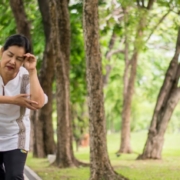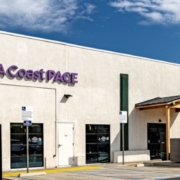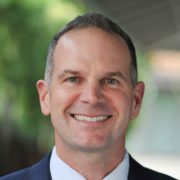mHealthIntelligence: California Provider Sees Telehealth as an Integral Part of PACE Programs
WelbeHealth President Matt Patterson says COVID-19 has taught the industry a good lesson on how to use telehealth, and it should be a permanent part of the senior care service.
– A California-based healthcare provider is integrating telehealth into its PACE programs, saying the connected health platform improves its ability to provide value-based care for seniors in their own homes.
While the focus of PACE programs has been on in-person care, the coronavirus pandemic prompted many to shift to connected health to maintain contact with their patients. For WelbeHealth, that meant partnering with Grandpad to equip patients with senior-friendly mHealth tablets that allow them to connect with caregivers on-demand and access health and wellness resources online.
“COVID-19 introduced the need for us to pivot to telehealth,” says WelbeHealth President Matt Patterson. “And in the process, we have saved lives.”
WelbeHealth is one of hundreds of providers focused on the senior care market, many of which participate in the Centers for Medicare & Medicaid Services’ Program of All-inclusive Care for the Elderly (PACE) program. Developed by CMS roughly 30 years ago as a capitated model of care for dual-eligible beneficiaries (ninety percent are dual-eligible), it provides all necessary medical care, therapies, long-term care and services, meals, socialization, transportation, day center services, and activities.
There are currently 135 PACE programs in 31 states, enrolling between 50 and 3,000 patients, for a total of more than 54,000 seniors served. The programs are based in a care center and feature an interdisciplinary care team (IDT) of primary care physicians, nurses, therapists, social workers, dieticians, home care professionals, and others and offers a variety of services on-site and in the home.
PACE programs have traditionally shied away from telehealth, but COVID-19 changed that line of thinking. Now Patterson and his team are at the forefront of a new wave of care providers who want to make telehealth an integral part of the program.
“It’s an exciting opportunity to extend the reach of PACE (and) do more to improve and enrich the lives of our participants,” says Patterson, a former naval surgeon who served as president of digital health pioneer AirStrip before moving into the senior care space.
Telehealth gives PACE programs with WelbeHealth’s the ability to be there for seniors at any time, and to address issues that might not be addressed during in-person visits. That’s important at a time when, mostly due to COVID-19 restrictions, seniors are experiencing high rates of depression, anxiety, stress and substance abuse.
That point has been proven in the Grandpad project. According to a case study, seniors in the WelbeHealth program logged nearly 34,000 hours on the tablets – using both synchronous and asynchronous services – between March of 2020 and March of 2021, including more than 1,500 hours accessing mental health treatment. They also used the tablets to access medical care and exercises aimed at treating cognitive decline.
Patterson says emergency measures adopted by both state and federal governments during the COVID-19 public health emergency have enabled PACE programs to use telehealth more freely. He and his company have been lobbying state officials to make those freedoms permanent.
On the federal level, a bill introduced in March and now before Congress would ensure permanent coverage for audio-only telehealth services for Medicare Advantage and PACE programs, giving providers like WelbeHealth the freedom to incorporate phone calls and non-video telehealth platforms into care plans.
The benefits of connected care are numerous. On-demand access to care providers means seniors can go about their day knowing there’s someone always available should an emergency occur. They have instant access to health and wellness resources that go beyond what they’re getting when the nurse comes by for a visit. They can also collaborate more often on medication management, keep track of daily vital signs, or just talk to someone if they’re lonely or depressed.
Patterson says the pandemic is giving WelbeHealth and others the time to prove the value of connected health and to gather data and experiences to support permanent coverage.
That will be important. CMS has traditionally been very reluctant to expand telehealth coverage and has long argued that it needs evidence that these tools and platforms improve clinical outcomes and reduce wasteful expenses and unnecessary treatments. In short, they want proof.
“PACE is an ideal model for integrating high-touch and virtual care,” Patterson counters. And he wants to do more of that.
“Telehealth is definitely not a replacement (for in-person care), but it gives us more tools, and we want to use these tools for what our participants desire,” he says. “As an organization, we only do well when our participants do well. And they’re doing well.”
Click on the logo to view the article.


























































